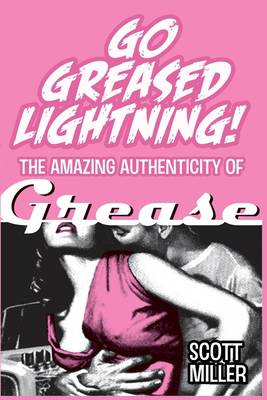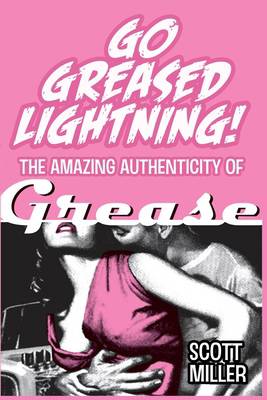
- Retrait gratuit dans votre magasin Club
- 7.000.000 titres dans notre catalogue
- Payer en toute sécurité
- Toujours un magasin près de chez vous
- Retrait gratuit dans votre magasin Club
- 7.000.0000 titres dans notre catalogue
- Payer en toute sécurité
- Toujours un magasin près de chez vous
14,45 €
+ 28 points
Description
One of the most successful, most iconic, most influential musicals of all time is so much cooler than you think it is! Most people underestimate the intelligence and authenticity of Grease, even those who love the show. So it's time to set the record straight. Originally a rowdy, rebellious, vulgar, and insightful piece of alternative theatre, written by two guys who lived it, Grease was inspired by the rule-busting success of Hair, rejecting the happy trappings of other Broadway musicals for a more authentic, more visceral, more radical theatre experience. It's an authentic snapshot of our country's tumultuous crossing over from the 1950s to the 1960s, throwing over repression and tradition for freedom and adventure and cultural chaos, a moment when the styles and culture of the disengaged and disenfranchised became overpowering symbols of teenage power and independence. But even the show's biggest fans can misunderstand it, for example, accepting the widespread belief that Sandy "becomes a slut" to win Danny at the end of Grease, even though the opposite is true. Sandy rejects the cultural oppression of the Fifties, and for the first time, she claims her own body, her curves, her sexuality. Though it might not be obvious, Sandy is the protagonist of Grease, and the story ends not with her submission, but with her newfound freedom and self-possession, with strength. Take another deep dive with musical theatre scholar and historian Scott Miller, to see how Grease was created, what makes it tick, what we can learn from it, how it's changed over time, and so much more. Haven't you ever wondered...
What actual 1950s songs inspired the songs in Grease?
Why is Sandra Dee such a potent metaphor?
Why is "All Choked Up" a better finale than "You're the One That I Want"?
What is the end of the show really about?
Why is Grease 2 so bad?
What actual 1950s songs inspired the songs in Grease?
Why is Sandra Dee such a potent metaphor?
Why is "All Choked Up" a better finale than "You're the One That I Want"?
What is the end of the show really about?
Why is Grease 2 so bad?
Spécifications
Parties prenantes
- Auteur(s) :
- Editeur:
Contenu
- Nombre de pages :
- 142
- Langue:
- Anglais
Caractéristiques
- EAN:
- 9798847080910
- Date de parution :
- 17-08-22
- Format:
- Livre broché
- Format numérique:
- Trade paperback (VS)
- Dimensions :
- 152 mm x 229 mm
- Poids :
- 199 g

Les avis
Nous publions uniquement les avis qui respectent les conditions requises. Consultez nos conditions pour les avis.






